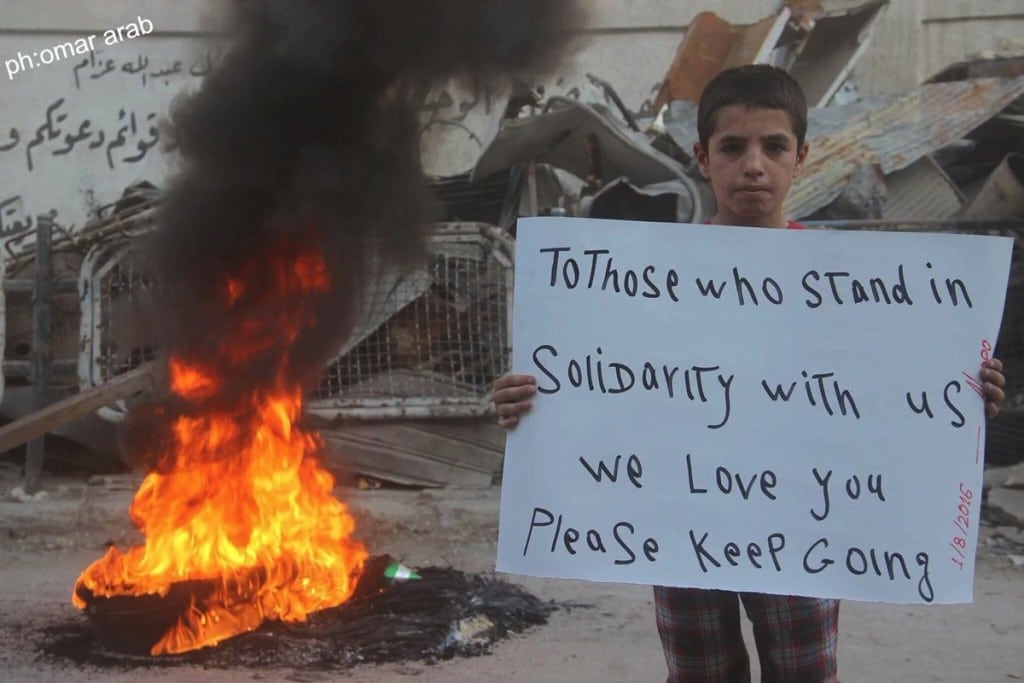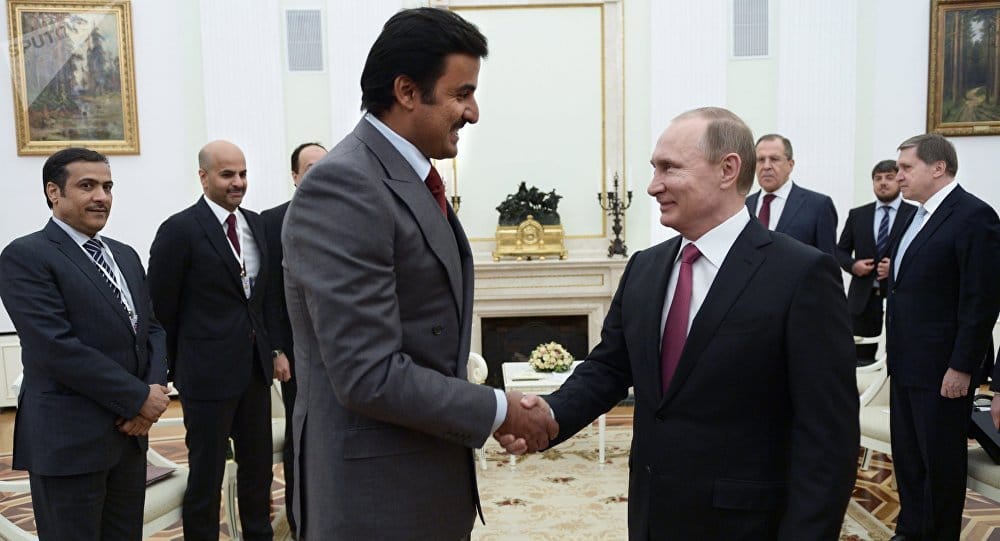UPDATE 1555 GMT: Pro-opposition outlets and activists claim pro-Assad forces have executed and abducted residents from towns in East Ghouta.
The site Nedaa Syria says a militia from the Damascus suburb of Jaramana killed 23 men and seized 5 women from Kafr Batna, and captured 150 residents of Saqba, including the director of the al-Bashar relief organization.
Reports are also circulating of looting by militia “pouring into the area to steal household furnishings and electrical appliances and sell them in the al-Assad suburb area at low prices”.
Footage from Harasta:
بالفيديو… "حرستا" من الإبادة إلى "التعفيش"
شنت قوات الأسد والميليشيات المساندة لها عمليات سلب ونهب للممتلكات العامة والخاصة عقب سيطرتهم على مدينة حرستا في الغوطة الشرقية. pic.twitter.com/Y1Ic68DAse
— وكالة داماسكي الإعلامية (@Damaskiagency) March 26, 2018
Pro-Assad troops in Saqba:
UPDATE 1530 GMT: Abu Ayman, 30, a resident of Douma, expresses the dilemma for some of East Ghouta’s residents:
I’ve spent my whole life here and lived the revolution. My father died here. How could I abandon his grave?
But I could never live alongside regime forces.
"Ayman" one of the volunteers in @SyriaCivilDefe in #Douma city, was injured today after artillery shell targeted the rescue teams during their humanitarian duty to evacuate the wounded in the city. We await news on his recovery and pray that it is quick. pic.twitter.com/95xXYQUCyj
— The White Helmets (@SyriaCivilDef) March 26, 2018
UPDATE 1115 GMT: Despite capitulation agreements in much of East Ghouta, near Damascus, the Assad regime and Russia continue their bombardment of Douma, the center of the shrinking opposition enclave.
E. #Damascus: despite negotiations & decrease of bombardment, Regime keeps shelling town of #Duma with artillery. Sporadic clashes in outskirts. https://t.co/qwYBhnSlx7 pic.twitter.com/szaQBfWNlV
— Qalaat Al Mudiq (@QalaatAlMudiq) March 26, 2018
After a seven-week pro-Assad offensive that has killed more than 1,600 people, wounded thousands, and displaced tens of thousands, the rebel factions Ahrar al-Sham and Failaq al-Rahman have laid down arms. However, Jaish al-Islam, the faction in Douma, is still in talks with Russia about the destination for their fighters and civilians moved from the area.
The Syrian Network for Human Rights summarizes its documentation of 871 civilians Killed, including 179 children, in East Ghouta since February 24, when a UN call for a ceasefire was issued but set aside by Russia. Pro-Assad forces used chemical and incendiary munitions among their bombardment.
Airwars tracked 68 claimed “civilian casualty events” from Russia airstrikes between March 12 and March 18. Estimates of the slain range from 204 to 407.
Of the strikes, 53 were in East Ghouta, 10 in Idlib Province, and 5 in Hama Province.
An appeal from a child:

Meanwhile, White Helmets rescuers receive the displaced in shelters in northwest Syria:
The @SyriaCivilDefe operations continue uninterrupted to equip temporary shelters to receive the forced displacement of of men women and children from #EasternGhouta and transferring the wounded to field hospitals. pic.twitter.com/wLgw4UK4s7
— The White Helmets (@SyriaCivilDef) March 26, 2018
The ruler of Qatar, a backer of the opposition throughout Syria’s seven-year conflict, is in Moscow for talks with Russian President Vladimir Putin, the essential ally of the Assad regime.
Monday’s discussion comes as pro-Assad forces, enabled by Russian airstrikes violating a “de-escalation” agreement and a UN call for a ceasefire, have brought a series of capitulation agreements and forced removals from East Ghouta near Damascus.
See Syria Daily, March 25: The Fall of East Ghouta — Talks for Surrender of Douma
Sheikh Tamim bin Hamad Al Thani and Putin will discuss the future of Bashar al-Assad and the opposition. Perhaps more importantly for Russia, the conversation will also cover the possible of the participation of Qatar in post-conflict reconstruction.
With Syrian GDP falling 75% and hundreds of billions of dollars of damage, Russia — which has its own economic difficulties — is facing the challenge of how to secure the economy and rebuilding of the country if Assad remains in power.
Putin called Abu Dhabi Prince Mohammed bin Zayed in early March and Saudi King Salman in February.
Russian analyst Dmitry Frolovsky suggested that Moscow might try to use leverage in the dispute between Qatar and a coalition led by Saudi and the UAE, in which Riyadh, Dubai, and allies imposed a blockade on the Qataris in May 2017. He noted that the Kremlin offered to help Doha with shipments of food and supplies.
Sheikh Tamim is accompanied by a delegation of Qatari ministers of finance, foreign relations, energy, and culture. Qatar Petroleum and Russia’s Rosneft are expected to discuss possible contracts, and Qatar Airways will sign a cooperation agreement with Rosaviatsia, Russia’s federal air transport agency.
The discussions also link to Russia’s conflict with Ukraine, in which Moscow has annexed Crimea and given military support to separatists in the east of the coutnry.
Last week, Sheikh Tamim met Ukrainian President Petro Poroshenko in Qatar, with talks including the possible export of Qatari liquified gas to Ukraine.

